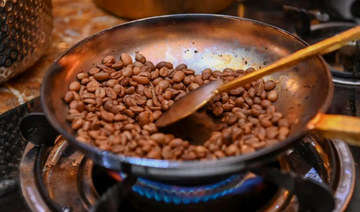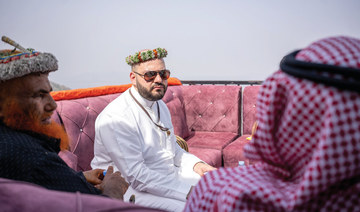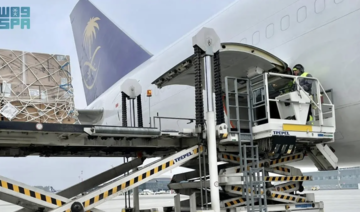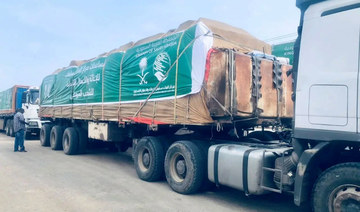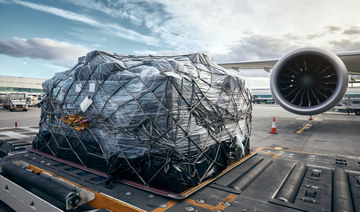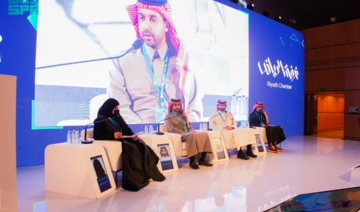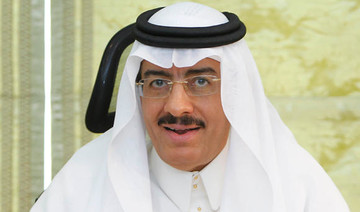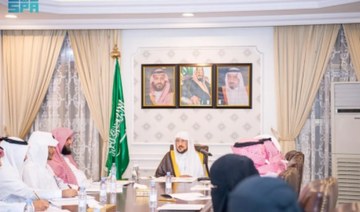Pakistan and Saudi Arabia have strong brotherly relations, deeply ingrained in the hearts of the people of the two countries.
The presence of more than 2.7 million Pakistanis in Saudi Arabia is a reflection of the strong bonds between the two nations. These expatriates have contributed to Saudi Arabia’s development, growth and prosperity.
The invaluable work done by Pakistani engineers, doctors, financial experts, architects, educationists and ordinary laborers is not only acknowledged but has also helped further cement the subterranean bonds of love and affinity between our two countries.
According to the available data, some 2 million Pakistani workers came to Saudi Arabia between 1971 and 2005.
With the arrival of the Pakistanis, the huge task of the development of the Kingdom began.
Roads and motorways, bridges, the two Holy Mosques, the holy precincts, deluxe hotels, immaculate highways, winding flyovers and underpasses, multi-storied residential complexes, the landmark Kingdom/Al-Faisaliah tower, royal guest houses and communications networks took shape out of brick and mortar. Pakistanis were engaged from designing to execution, everywhere.
In 1978, Pakistani engineers and technicians working with Bell Canada, Ericsson and Phillips were involved with the installation, operation and maintenance of switching, transmission and communication networks.
In addition, the present structure of the Saudi Electric Company is the brainchild of a handful of Water and Power Development Authority (WAPDA)-trained Pakistani engineers who completed the tasks of planning, designing, installation, operation and maintenance of the company.
Our specialists and consultants also helped to shape the banking and finance sectors of the Kingdom.
The National Bank of Pakistan (NBP) was one of the few international banks which, in 1949, received a license to operate in Saudi Arabia.
The Saudi Arabian Monetary Agency (SAMA) was established in 1952, and in 1964 King Faisal appointed a dynamic Pakistani economist, Dr. Anwar Ali, as the first governor of SAMA (1964-74). He formulated the agency’s banking control laws in 1966, introducing an annual report system and established an investment department to divert dollars — pouring in due to the oil price boom in 1973 — toward infrastructure development of the country. These initiatives still work as the bible of monetary policy of the country.
SAMA advisers Saeed Hamid, Hassan Mustafa, Misbah Uddin Farooqi and Pervaiz Hassan toiled from the early 60s till the early 90s to develop banking systems and procedures. Dr. Mohammed Umar Chabra (1966-1998) was another economist and researcher from Pakistan who propounded his theory on Islamic banking and won the prestigious King Faisal Award. He pioneered establishing the Islamic Development Bank in Jeddah.
Tariq Jawaid, another well-known economist and Pakistani finance wizard, started his services at SAMA in the early 80s and continues to do so.
He brought in more skilled bankers of Pakistani origin such as Jamil Ahmed, Rana Shahid Habib, Qaisar Noor, Mehdi Hassan and Abbas Hassan, who rendered their services for more than two decades. They made up the second generation of Pakistanis supplementing the commendable work done by their predecessors.
In the late 80s, almost 75 percent of CFOs were of Pakistani origin, and NBP held 40 percent of the shares in Bank Al-Jazeera. World-renowned Pakistani monetary expert Shaukat Aziz worked as a bank CEO from 1986 to 1988 and made a great contribution to the development of the banking sector in the Kingdom. The legacy continues with bankers such as Ghayas Beg, Shujaat Nadeem and Sajjad Rizvi.
Health care is yet another sector where Pakistani medical professionals have earned great prestige for their country.
In 1970, Dr. Naeem Ghani, a UK-trained general surgeon, joined the Military Hospital in Riyadh and established its surgical department, and his commendable work led to him being appointed as personal physician to the current King Salman. The late Princess Sultana Foundation was also established in Rawalpindi at his behest.
Dr. Shahid Nawaz helped to establish the Department of Cardiology in Buraida, and became a renowned cardiologist in the Kingdom. In the early 70s, Dr. Ashraf Ali and Dr. Halim Khan helped to set up the histopathology department in Riyadh.
Dr. Fazal-ur-Rehman, another prominent Pakistani cardiologist, headed the late King Khalid’s medical team and for his services in the health sector he was given a ministerial position.
Over 40 years ago, Dr. Ameer Bux Channa established the department of anesthesiology at the King Khalid University Hospital of King Saud University. His training programs are still followed at the university.
The second generation of health professionals came in the early 80s. Prof. Riaz Qureshi initiated the first Saudi Board Family Medicine Program. Senior Consultant Endocrinologist Dr. Sohail Inaam has been at the Prince Sultan Military Medical City for several decades. His contributions to research in diabetes are well recognized.
In the Eastern Province, the inaugural Eye Hospital was staffed by Pakistani consultant ophthalmologists such as Dr. Wajahat Ali Pirzada, who has been in the post for more than a quarter of a century. Dr. M F Siddiqui is a renowned author.
The Saudi Ministry of Health has been hiring thousands of physicians, medical specialists and consultants from Pakistan to run its national health program.
In addition, Pakistanis have left deep imprints in the educational sector of Saudi Arabia.
At the College of Medicine of King Saud University, Prof. Dr. Sultan Ayoub Meo, an internationally renowned Pakistani scholar, has made an important contribution toward research in diabetes in the Kingdom, for which he has been awarded the King Abdul Aziz medal of excellence.
Another notable Pakistani, Prof. Dr. Mohammed Khurram Khan, has played a pivotal role at the college of Computer and Information Sciences of the university, and set up the Center of Excellence for research in cybersecurity. His endeavors have also earned him the King Abdul Aziz medal of excellence.
There are also dozens of Pakistanis who have worked tirelessly for the university and earned great respect. Dr. Mujahid Kamran was a professor in the physics department before he joined Punjab University as its vice-chancellor.
In the development of mass communication and media, Pakistanis did not lag behind. Professor Javed Iqbal, from the College of Languages and Translation at King Saud University, made the first announcement from Saudi English Channel 2 in June 1981.
He remained as the only Asian program presenter who interviewed dozens of Pakistani dignitaries during their visits to Riyadh and produced programs on Pakistani culture.
In the Urdu service sector of Saudi Radio, he has presented his weekly programs for the past 37 years. For his contribution, he has been awarded the King Fahd Shield.
The hundreds of thousands of Pakistanis who helped to build Saudi infrastructure consider this country their second homeland.
Every inch of Saudi Arabia today bears the aroma of Pakistani sweat, and our Saudi brothers gratefully acknowledge it.
Pakistani expats have contributed to Saudi Arabia’s development, growth and prosperity, says diplomat
Pakistani expats have contributed to Saudi Arabia’s development, growth and prosperity, says diplomat
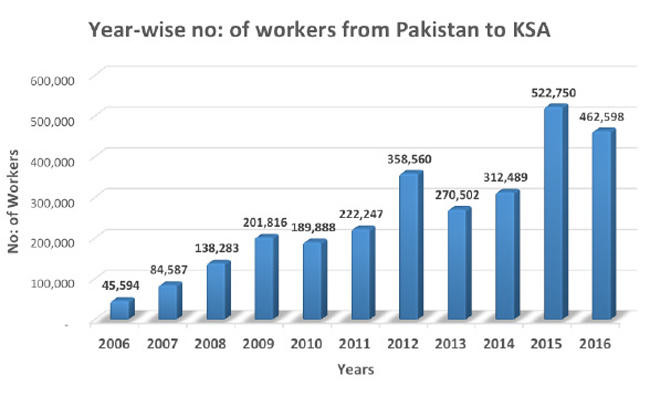
Saudi Coffee Co. and Bieder & Maier blend two coffee cultures
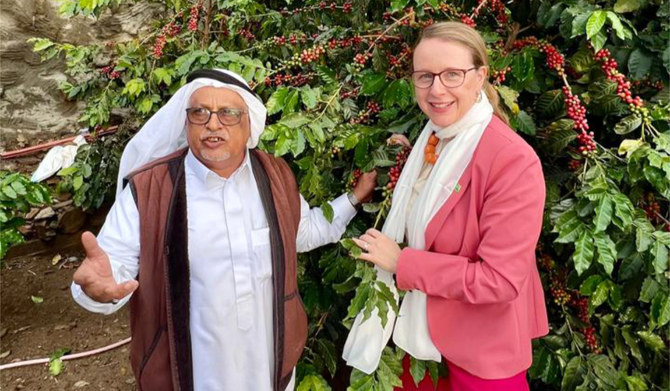
- Viennese coffee-maker collaborates with local brand to buy Arabica beans from Jazan
RIYADH: The Kingdom and Austria recently celebrated the world premiere of the “Premium Saudi Blend” by Viennese coffee manufacturer Bieder & Maier and the Saudi Coffee Company.
The launch of the product brings Saudi and Austrian coffee culture together. During the presentations in Vienna and Riyadh, guests tasted the new coffee roast, catering for espresso to filter and cold brewing.

“The coffee is an embodiment of our culture and identity,” CEO of Saudi Coffee Company Khalid AbuTheeb told Arab News. “With the objective of enhancing the local coffee industry and promoting our coffee tradition, we have collaborated with Bieder & Maier, a Vienna-based coffee powerhouse.”
AbuTheeb said that the collaboration was facilitated by the Saudi Ministry of Investment. “Through this collaboration ... the Saudi Coffee Company will bring forth unique coffee blends utilizing Saudi coffee beans in a mix with international beans to the Saudi and Austrian markets,” he said.
HIGHLIGHTS
• In 2011, Viennese coffee house culture was declared an intangible world heritage, followed by Arabic coffee in 2015 and Saudi Khawlani Arabica beans in 2022.
• They have all been declared intangible world heritage by UNESCO in recognition of their respective traditions and cultural significance.
• Starting during fall this year, a number of coffee houses will be opened in Saudi Arabia, with Cenomi Retail as franchise partner.
According to AbuTheeb, they will supply the finest Saudi coffee beans directly from the Jazan region.
“As we explore roasting capabilities here in the Kingdom, we are not just content with embracing tradition; we are striving to shape the future of coffee, where innovation intersects with heritage on a global scale,” he said.
Dr. Margarete Schramboeck, the former minister of economy and digital affairs of Austria, and current Aramco digital board member, expressed her growing interest in Saudi coffee culture since she moved to the Kingdom.
“It was the year 2022 when I first came to the Kingdom and learned about the Year of Saudi coffee and the amazing culture of growing coffee in Jazan,” Schramboeck told Arab News. “Therefore, I was passionate about bringing this idea of a special Saudi blend to life. An exceptional partnership with the support of the Ministry of Investment of Saudi Arabia has been initiated. I want to thank Minister Khalid Al-Falih and team for the support.”
Recalling her visit to Jazan and its coffee-growing families, Schramboeck said: “The quality and tradition of coffee has deeply impressed me.”
Rudi Kobza, founder and CEO of Bieder & Maier Vienna, stressed the importance of the collaboration. “The Saudi heritage is unique and the ambition of the Saudi Coffee Company is impressive. The Premium Saudi Blend brings this philosophy in an authentical way alive. This can be experienced soon in our first Bieder & Maier cafe in Saudi Arabia, which we will operate with our partner Cenomi, as well as in Vienna.”
“Austrians share a common passion for coffee. Therefore, I was passionate about developing this project. When Saudi Arabia meets Vienna, the home of the Arabica coffee bean combines with the home of traditional coffee house culture to create a particularly enjoyable coffee project.”
In 2011, Viennese coffee house culture was declared an intangible world heritage, followed by Arabic coffee in 2015 and Saudi Khawlani Arabica beans in 2022. They have all been declared intangible world heritage by UNESCO in recognition of their respective traditions and cultural significance.
Starting during fall this year, a number of coffee houses will be opened in Saudi Arabia, with Cenomi Retail as franchise partner.
Excavators held for violating water system

- The discovery was made during field tours carried out by the water department
TUBARJAL: The Al-Jouf branch of the Saudi Ministry of Environment, Water and Agriculture has apprehended three excavators who were found to be violating the water system in Tubarjal.
The discovery was made during field tours carried out by the water department, in cooperation with the competent authorities in the governorate.
Separately, authorities in Addayer in the Jazan region have arrested seven Ethiopians for smuggling 105 kg of hashish. Legal procedures have been completed against the offenders who were handed over, along with the seized items, to the competent authority.
Border guard patrols in the Al-Harth area of Jazan have also foiled an attempt to smuggle 71 kg of hashish, with initial legal procedures completed and the find handed over to the competent authority.
Security authorities have reiterated their appeal for citizens and residents to report any information regarding drug smuggling or selling by calling 911 in Makkah, Riyadh, and the Eastern Region, and 999 in the rest of the Kingdom’s regions.
Those with information may also contact the General Directorate of Narcotics Control at 995 or at [email protected].
48th Saudi relief plane for Palestinians
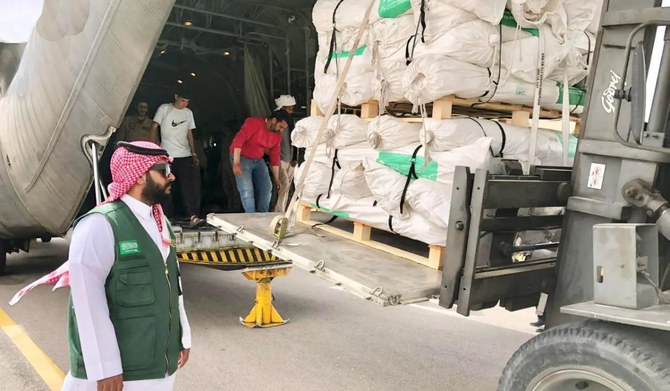
- The plane carried shelter materials to be transported to the conflict-affected Palestinians in the Gaza Strip
AL-ARISH: The 48th Saudi relief plane for Palestinians in Gaza arrived on Friday at Al-Arish International Airport, Egypt.
It was operated by the King Salman Humanitarian Aid and Relief Center, in coordination with the Saudi Ministry of Defense.
The plane carried shelter materials to be transported to the conflict-affected Palestinians in the Gaza Strip.
The provision of aid is ongoing from the Kingdom, which has stood firm with the Palestinians amid crises and tribulations.
Direct KSA to Iraq flight routes announced
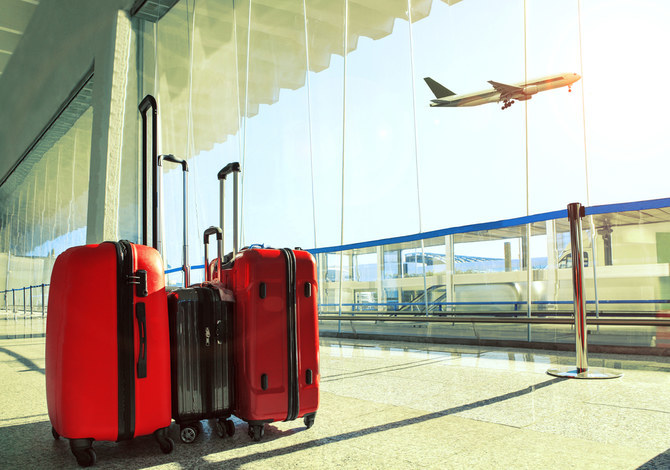
- These flights, along with flights to Baghdad and Irbil, will commence from June 1.
RIYADH: The Saudi General Authority of Civil Aviation announced the launch of direct flights from Dammam to Najaf, the Saudi Press Agency reported on Friday.
The decision is in line with the Kingdom’s national aviation sector strategy, aimed at doubling capacity to accommodate over 330 million passengers annually, and extending services to more than 250 global destinations.
These flights, along with flights to Baghdad and Irbil, will commence from June 1.
Ministry of Hajj and Umrah praises Iraqi authorities for arresting fraudsters touting fake Hajj trips
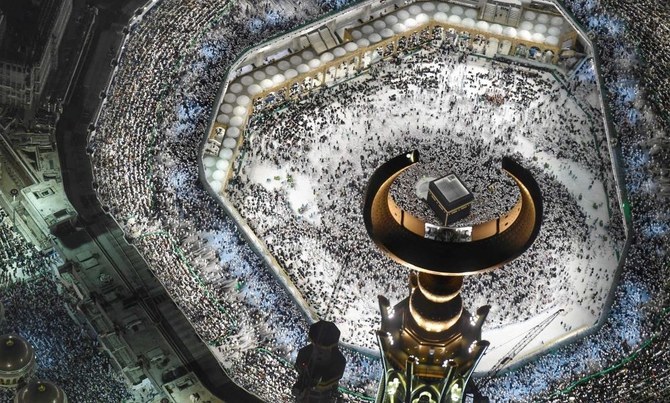
- A ministry source in the statement also warned prospective pilgrims to beware of unauthorized Hajj offers being promoted this year
- The ministry made it clear that visas for Umrah, tourism, work, family visits, transit, and other categories do not grant eligibility to perform Hajj
RIYADH: The Ministry of Hajj and Umrah expressed its gratitude for actions taken by the Supreme Commission for Hajj and Umrah in the Republic of Iraq that resulted in the prosecution of more than 25 companies fraudulently engaged in commercial Hajj operations.
A ministry source in the statement also warned prospective pilgrims to beware of unauthorized Hajj offers being promoted this year, primarily through social media.
Participation in Hajj requires pilgrims to obtain a legitimate Hajj visa issued by the authorities in the Kingdom in coordination with Hajj affairs offices in their respective countries, or via the Nusuk Hajj platform for those countries that do not have an official Hajj office.
The source said that the Ministry of Hajj and Umrah is monitoring advertisements from companies and campaigns, as well as identifying fake accounts on social networks allegedly offering Hajj packages at enticing prices.
The ministry made it clear that visas for Umrah, tourism, work, family visits, transit, and other categories do not grant eligibility to perform Hajj. It urged pilgrims to be careful not to fall victim to companies and others claiming to offer commercial Hajj campaigns or other misleading initiatives.
“Regulations must be followed and legally documented permits, as represented by the official Hajj visa, must be issued, so a safe, secure, well-managed Hajj program and fair representation to all nationalities is provided,” Mohsen Tutla, head of the World Hajj and Umrah Convention, told Arab News.
“Hajj is a mega event with more than 2 million worshippers. Can one imagine, if order was not imposed and (the event) not regulated, chaos would ensue,” he added.
In the statement, the ministry calls for everyone’s cooperation to help combat and report fraudulent companies and campaigns, and to seek information only by visiting its official website and engaging with its channels on social networks.


